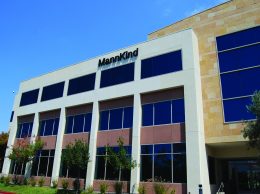Glass House reports revenue growth but more losses as it converts massive Camarillo greenhouses
IN THIS ARTICLE
- Agribusiness Topic
- Jorge Mercado Author
By Jorge Mercado Thursday, November 11th, 2021
Glass House Brands, a cannabis grower in Santa Barbara and Ventura counties and retailer and wholesaler statewide, saw both its revenue and net losses grow in the third quarter.
Glass House, which has its headquarters in Long Beach but most of its operations on the Central Coast, delivered revenue of $17.2 million in the third quarter of 2021, a 29% increase from the third quarter of 2020, according to earnings released Nov. 11.
The company’s biggest sales channel was wholesale, business-to-business consumer packaged goods revenue, which account for 41% of total revenue.
Retail sales at the company’s dispensaries accounted for 30% of revenue, while wholesale revenue from unpackaged cannabis biomass accounted for 29%.
The company’s net loss rose to $7.7 million, from $4.7 million in the third quarter a year ago, mostly as a result of increased operating expenses. Operating expenses were $11.8 million compared to $9.5 million last year.
The company also had a $9.5 million loss from operations in the third quarter of 2021.
Shares of Glass House Brands, which trade under the symbol GLASF, closed at $5.82 on Nov. 11, down slightly from their $5.92 closing price on Nov. 10. Earnings were released after the market closed on Nov. 11.
Glass House produced a record amount of dry pound production in the third quarter of 2021: 28,286 pounds, a 30% year-over-year increase. The average cost per dry pound produced dipped from $193 in third quarter 2020 to $179 in third quarter 2021.
Glass House recently closed its purchase of greenhouses in Camarillo that were the former home of Houweling’s Tomatoes. The 160-acre property has six greenhouses that total 5.5 million square feet.
Glass House bought the property for $93 million in cash, plus stock considerations, the company said in a Sept. 15 news release.
Glass House, which was founded in Santa Barbara in 2015 and went public in a merger with a special purpose acquisition company in July, plans to turn the Houweling’s location into one of the world’s biggest cannabis greenhouses. It is converting part of the property for cannabis, while growing vegetables in the remaining portion.
“The California market is now in the long-awaited process of commoditization, and this will be difficult for all who have operations in the Golden State. It is a necessary step in the maturation of the market and similar to what happened in Colorado, Washington and Oregon,” CEO of Glass House Kyle Kazan said in a news release. “We are leaning into this period by focusing on significantly lowering our COGS (cost of goods sold) through scale and automation at our newly purchased Camarillo facility, as we believe that highest quality at the lowest production costs in California will be the big winner.”












